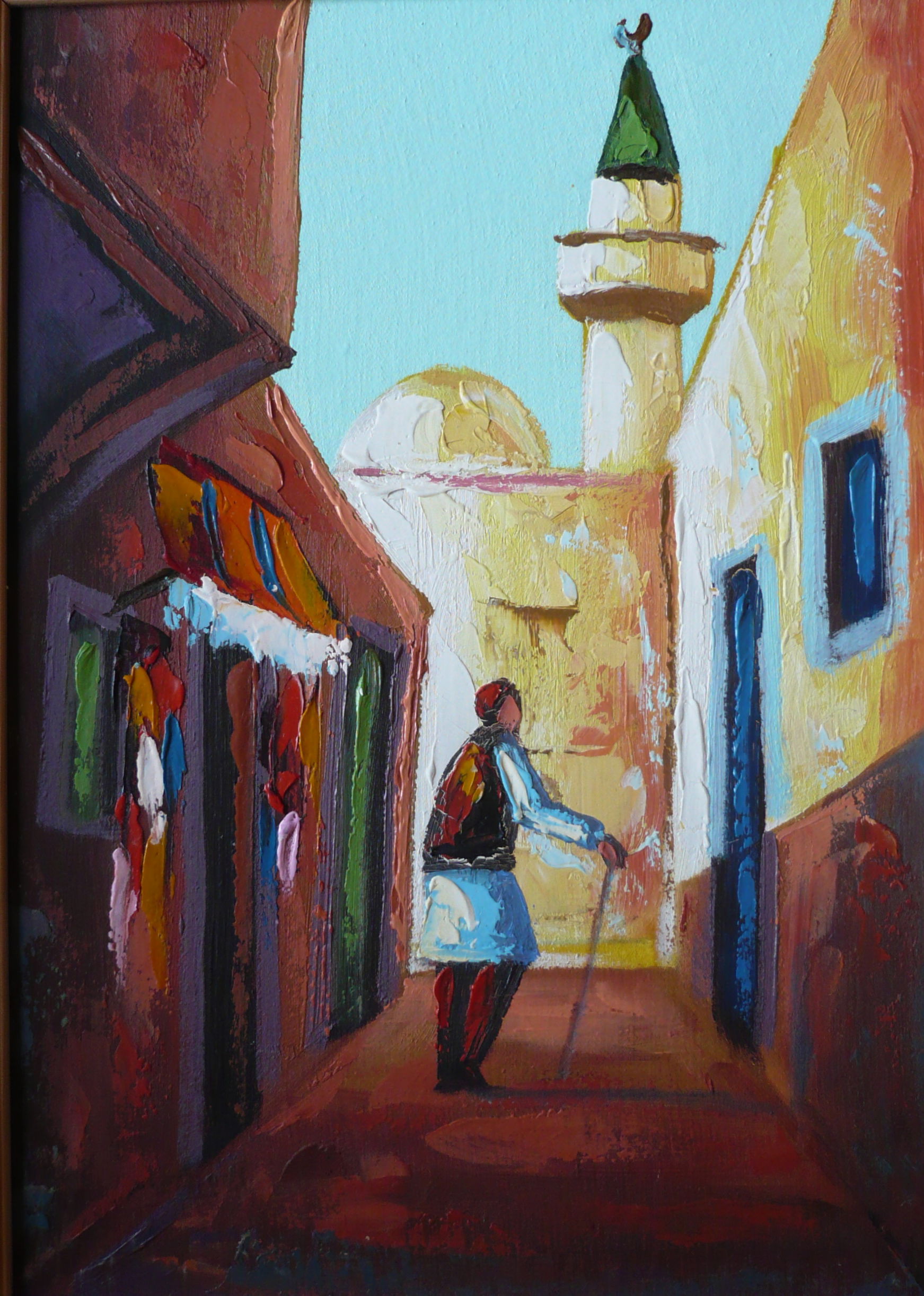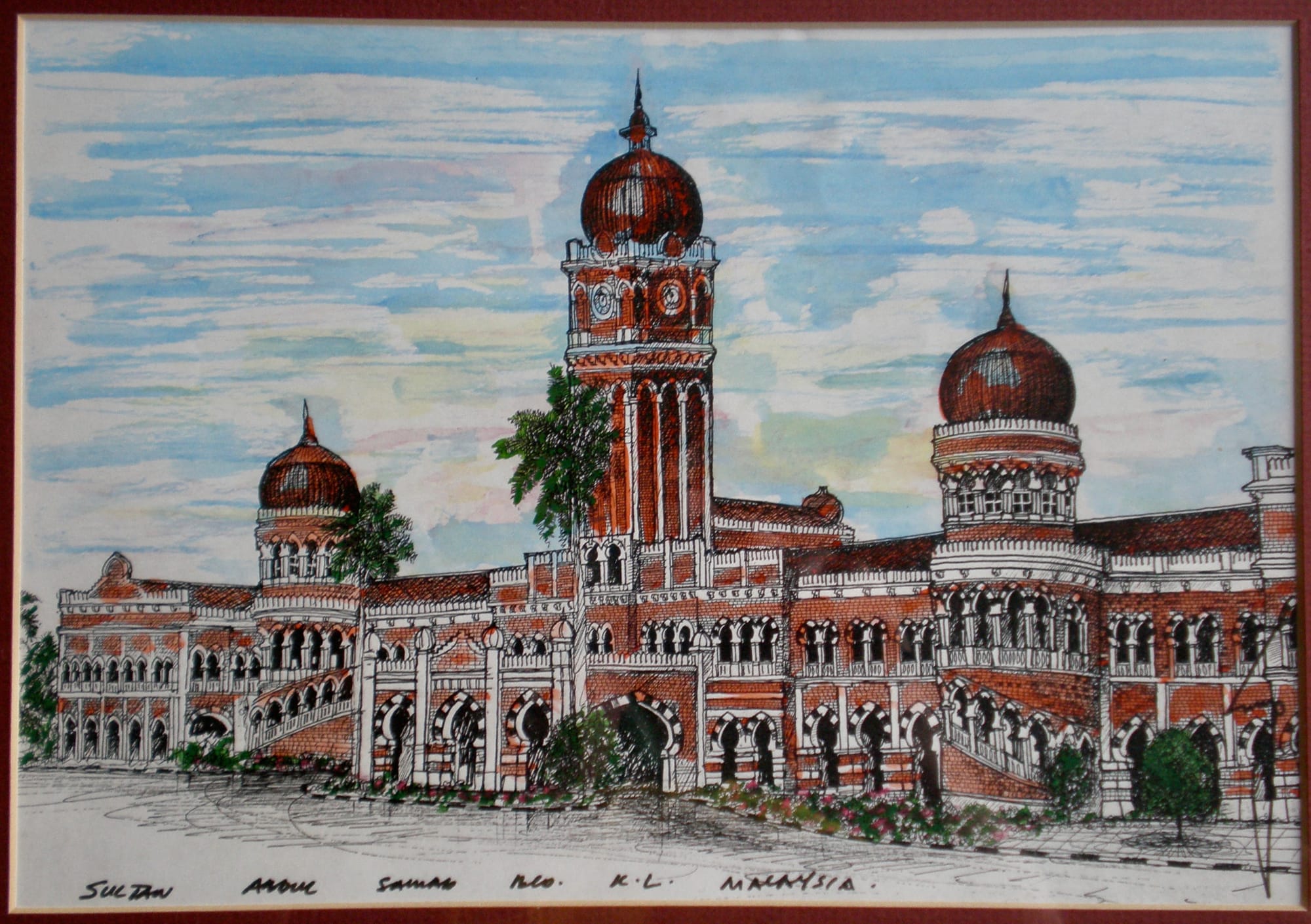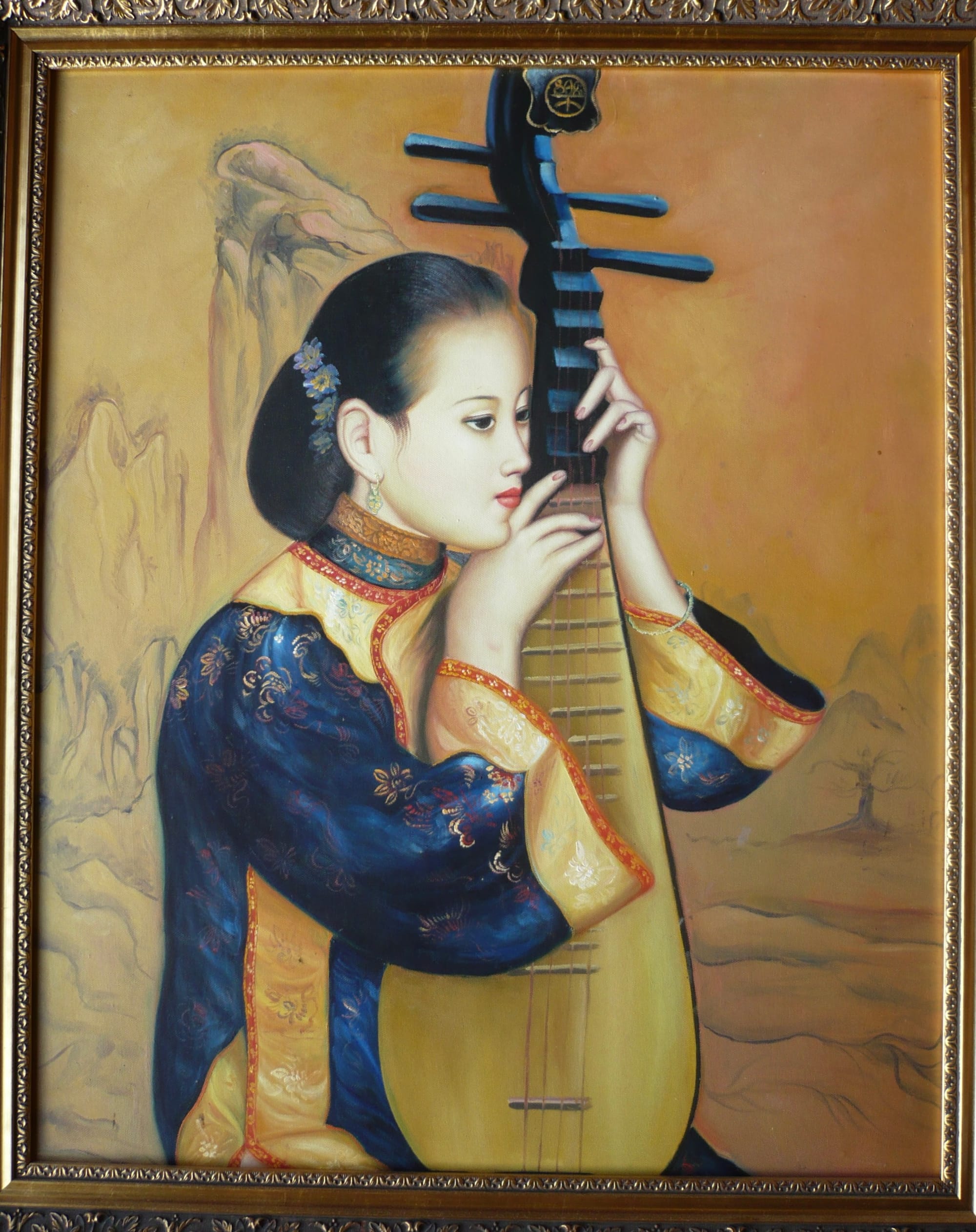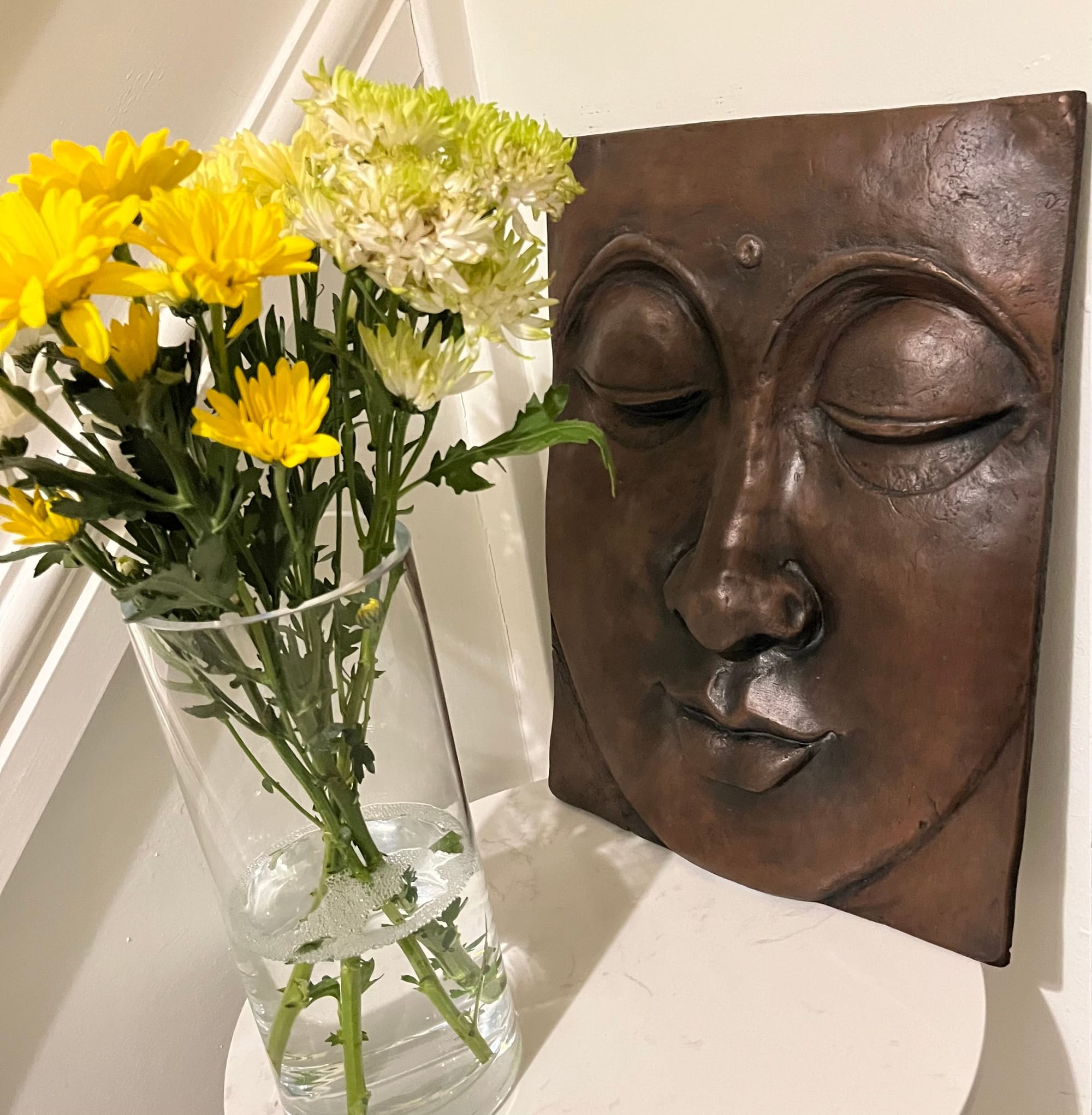Eastern Reflections – Culture & Contemplation
Artworks that meditate on spiritual symbolism, architectural elegance, and cultural depth
This collection showcases a selection of paintings I’ve acquired during my travels, including one gifted to me by Mum and Dad—a gesture I treasure deeply. Souq-al-Turk, from Libya, pulses with market life and vibrant energy, while The Sultan’s Palace in Kuala Lumpur stands as a beacon of regal architecture and historical pride. Chen Yifei’s Woman with Pipa captures musical grace and Taiwanese tradition in quiet, contemplative tones. Jim Francis’s Tibetan Buddha Goddess bridges Eastern spirituality with Western technique, offering a layered meditation on form and faith. Together, these works speak to the quiet power of cultural continuity and spiritual presence—reminders that across borders and styles, art remains a vessel for memory, meaning, and connection
Souq-al-Turk by unknown artist
Acquired in Libya during an audit at Eni Gas, this evocative oil painting offers a glimpse into the timeless rhythm of North African urban life. My reason for working in Libya was more than professional—it was personal. I was following in the footsteps of Mum and Dad, who lived and worked there during the pre-Gaddafi era, when King Idris ruled with serenity and respect. The scene unfolds in the heart of Tripoli’s old city, where whitewashed buildings reflect the Mediterranean sun and narrow alleys hum with quiet commerce. At the center stands a Berber man, his robes catching the light, his posture dignified yet solitary. He is both participant and observer—an emblem of tradition amid the shifting tides of modernity. The souq is rendered with loose, expressive brushwork: arched doorways, faded signage, and the suggestion of movement just beyond the frame. It’s a portrait not just of place, but of memory—personal, cultural, and quietly enduring.

The Sultan's Palace, Kuala Lumpur by unknown artist
Painted for mum and dad during their visit to Malaysia, this artwork of the Sultan’s Palace in Kuala Lumpur is more than a depiction—it’s a gift of memory, passed from one generation to another. The palace, formally known as Istana Negara, serves as the official residence of Malaysia’s Yang di-Pertuan Agong (King) and stands as a symbol of national unity and sovereignty

Woman with Pipa by Chen Yifei
Acquired during a visit to Taiwan, this painting by Chen Yifei stands as a visual poem of the East—a masterful blend of Romantic Realism and traditional Chinese symbolism. The woman, poised with her pipa (a four-stringed lute), is rendered with haunting elegance. Her gaze is distant, her posture serene, as if caught in the quiet tension between performance and introspection. Chen Yifei, one of China’s most celebrated contemporary painters, was known for his ability to fuse Western oil techniques with Eastern subject matter. His women—often dressed in flowing silk or seated in contemplative silence—embody a kind of melancholic grace, echoing themes of longing, memory, and cultural continuity.

Tibetan Buddha Goddess by Jim Francis
Positioned in my front hallway, this painting becomes more than décor—it’s a guardian of calm, a visual mantra that welcomes guests into a space of reflection and grace. The figure of the Buddha Goddess, rendered by Jim Francis, radiates a serene stillness that feels both sacred and accessible. Her gaze, posture, and aura suggest not just divinity, but compassion and safety, when you enter my house.
